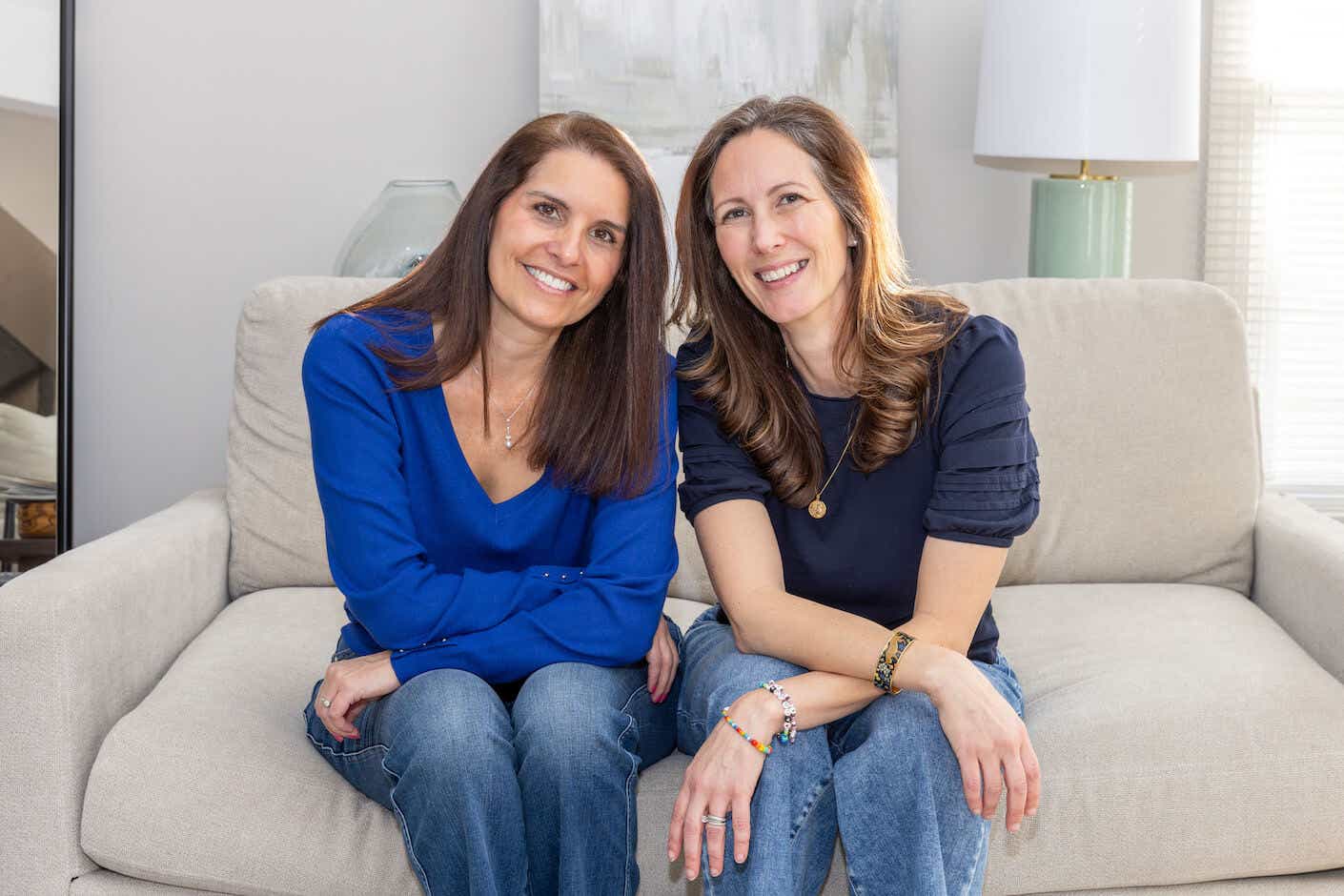Maybe you need a new sports bra. A scented candle. A contractor you can trust. But when you painstakingly sift through Google, you have a nagging feeling: How can you be sure that whatever company you hire or buy from aligns with your own values?
As staunchly progressive consumers try to vote with their dollars, veering away from corporations like Amazon and Target is often their first move. But what’s the best replacement, and how can they find it amid endless pages of search results?
Kate Marsh Lord and Erin Fangmann came up with a solution: In 2025, they founded Little Blue Cart, a directory that connects customers with progressive, small businesses (and yes, that includes services as well as products). Since both Marsh Lord and Fangmann had started separate, bustling small businesses in the past, they knew their way around commerce and were more than ready to throw themselves at a challenge.
To better understand how their business model works, we hopped on the phone with this dynamic duo to chat all things shopping, ethos, and community.

KCM: How did you decide to start Little Blue Cart?
Kate Marsh Lord: We're both military spouses. We met in 2014 at this teeny tiny remote air base in northern Japan. We've been friends ever since, through multiple moves all over the world. We've stayed in contact and commiserated about election results.
Erin Fangmann: Kate and I both had children who were seniors in the 2024-2025 school year. Kate had her son's photographs taken. After the election, I wanted to make sure that my dollars went to someone that didn’t support the Trump administration. I loved those photos of her son, so I asked, “Hey, who did his photographs? Do you know who she voted for?”
And Kate said, “Yeah, I know she didn’t vote for Trump.” We kept talking and we said, “There's going to be a large group of people that feel the way we do. We don't want to spend dollars with businesses that support the Trump agenda.” And so we said, “Let's create a directory. “ We literally met at a bakery and just started doodling, coming up with a name and a concept. And it’s blossomed.
Marsh Lord: We realized that we can actually control how we spend our money. We've voted, we've protested, but now — and this feels like the next step — we can control who gets our money and what businesses we're supporting.
We felt committed to focusing on small businesses because we've been small business owners ourselves in the past, and consumers can do the research for some of the bigger companies — you can find out who their CEO donates to, or what corporations support what politicians. But you don't know that about small mom-and-pop shops or an online retailer who's making candles in her kitchen at night. So this was a way to really make sure you're supporting people who have the same beliefs that you do.
You carefully vet and review every business to make sure that these values align. What does that vetting process entail, and what values are you looking for alignment on?
Fangmann: Businesses have to agree to [our terms in order to be featured]. We lay out our beliefs in freedom, progress, women's rights, LGBTQ rights, and that Black Lives Matter. These seem like basic human rights to us at this point, but they’re unfortunately up for grabs.
When we were small at the beginning, no one was lying about not backing the MAGA agenda to get on our little old website. Now that we've grown, it might be an issue, but it's pretty self-selective. Both the businesses who want to be listed and the shoppers that we're connecting with, they see the mission and think, Oh yes, I've been looking for this, or This is a great way to make sure that my money is going to good causes.
What has community feedback been like?
Fangmann: Hearing from folks on the platform is very important. We want to make sure that everybody feels heard, and they feel like they are able to be in communication with us. Everybody is welcome to communicate with us personally; we get success story messages all the time, and we absolutely love it.
Marsh Lord: Those are my favorite emails or messages on social media. Seeing people connect, shoppers saying, “I just ordered a new necklace. I'm so excited for it to arrive.” Then there are ones where different folks on the directory are finding each other. There’s an online fitness app that streams workouts, and they’re upgrading their website platform with a developer they found on Little Blue Cart. It's so rewarding.
Are there specific groups that you want to celebrate or champion?
Fangmann: We’re deeply committed to uplifting BIPOC voices. We recognize the systemic barriers these business owners face, and we are intentional in how we hold space for them on our platform. The trust these small business owners place in us, to represent their work and values with integrity, is something we take seriously, and we work every day to earn and honor that trust.
What are your plans for the future?
Fangmann: We have a lot of big plans.We reinvest everything. We’re currently working with a web developer who we found listed on Little Blue Cart; they’re helping us upgrade a lot of our tech because it was literally us building it in my kitchen. We didn't let perfection be the enemy of good, we just wanted to launch it knowing that it didn't have all the bells and whistles. It's not a perfect website by any means, but so we're launching a new infrastructure for the site soon.
And then also in the next couple months, we're really hoping to launch a market so that small businesses can sell directly on Little Blue Cart.
Eager to explore the platform for yourself? Check out Little Blue Cart here.









